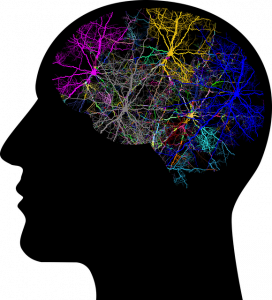Can Ketamine Help You Drink Less Alcohol?
More than 14 million Americans suffer from alcohol use disorder (AUD)—and millions of others drink more than they’d like to. But with less than eight percent receiving treatment each year, and only a fraction of those individuals remaining abstinent long-term, it’s clear that more options are needed. New research suggests that the drug ketamine may be a useful treatment for alcoholism. But does it really work? And how?
What Is Ketamine?
Ketamine was first developed as a form of anesthesia in the 1960s, and is now commonly used in veterinary medicine. Over the past few decades it has also developed a second life as a club drug. Sometimes referred to as “Special K,” ketamine’s potential effects include hallucinations, and a sense of disconnection from one’s body.
Such recreational use remains illegal. However, ketamine’s psychological effects have been getting increased attention from the medical community. In 2019, the FDA approved a variant of the drug to treat depression. Studies have also shown that it can help with post-traumatic stress disorder, and according to recent research alcoholism may soon be added to the list.
Ketamine, Alcohol, and Memory

Image by Gordon Johnson from Pixabay
In November 2019, researchers from University College London published new findings, suggesting that ketamine can help people reduce how much they drink. They theorized that the drug works by rewiring people’s memories around alcohol, helping them to change their behavior patterns.
How the Study Worked:
The researchers showed images of alcoholic drinks to 90 heavy drinkers, asked them to rate their urge to drink alcohol, and then rewarded each with a beer. The next day, participants were divided into three groups:
- One group was shown pictures of beer to stimulate their memories, and then offered beer to drink. Before they could have any, the beer was abruptly taken away, and they received an injection of ketamine.
- Another group experienced the same scenario, but were given a placebo drug.
- The third group were shown no beer, and given ketamine only.
After 10 days, the participants returned to the laboratory to assess their drinking habits. The group that was offered beer and then given ketamine experienced a significant decrease in their urge to drink, and drank less alcohol. In a follow-up nine months later, their average alcohol consumption was cut by half. The other groups also decreased their drinking, but by significantly less.
What Do These Results Mean?
This study suggests that even a single dose of ketamine can have a lasting impact on a person’s drinking habits. It also supports the idea that ketamine can help rewrite a person’s memory.
Essentially, the researchers created an expectation around drinking, and then violated it, bringing participants’ memories of alcohol to the surface. By adding ketamine at this vulnerable moment, the researchers believe that they were able to interrupt, or “destabilize” those memories. This resulted in lasting behavior change.
Should I Take Ketamine to Help Me Stop Drinking?
Although the results of this study look promising, more research is still needed. Ketamine is not yet approved as a treatment for AUD, and has many potentially dangerous side effects. It’s best to wait for further research before trying to quit drinking this way.
However, ketamine is not the only prescription medication that’s been shown to help with alcohol dependence. The FDA has already approved three other medications for this purpose, and several others are widely considered safe as well.
Current Medications for Alcohol Use Disorder:
- Naltrexone: This medication works by blocking the pleasurable effects of alcohol. People who take naltrexone can continue to drink, but gradually learn over time not to associate alcohol with any positive impact. Eventually, many lose interest in alcohol, and can even drink moderately so long as they stick with the medication.
- Acamprosate: This medication is often used to help people stay sober once they’ve already quit. It works by restoring a chemical imbalance in a person’s brain that results in alcohol cravings.
- Disulfiram: The original medication approved to treat alcoholism, this drug works by making you violently ill when you drink. There are now gentler alternatives, but for some people this “tough love” approach can still work.
- Off-label medications: Although not officially approved by the FDA, there are several other medications that are considered safe for treating AUD. These include gabapentin, topiramate, and baclofen. Each has been shown to have a significant impact on alcohol cravings for some people.
Any of the above medications may work for you, or for someone you love who struggles with alcohol addiction.
Continue reading: Medication for Alcoholism
Medication-Assisted Treatment with Ria Health
Ketamine has yet to be approved as a medication for AUD. But if you’re looking for scientifically tested, effective alternatives to mainstream alcohol treatment, Ria Health may be able to help.
Our online program combines currently approved prescription medications with medical counseling, recovery coaching, digital progress-tracking tools, and group support. The whole thing is accessible through a handy smartphone app, and is even covered by many major insurance plans. Learn more about how it works, or schedule a call with a member of our team today.
Will insurance cover treatment? Verify Coverage
Have Questions? Call (800) 504-5360



